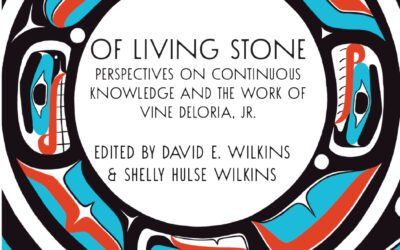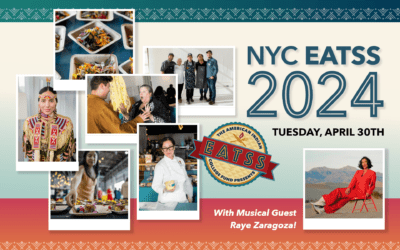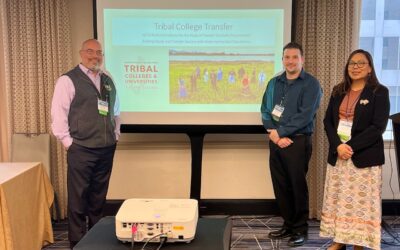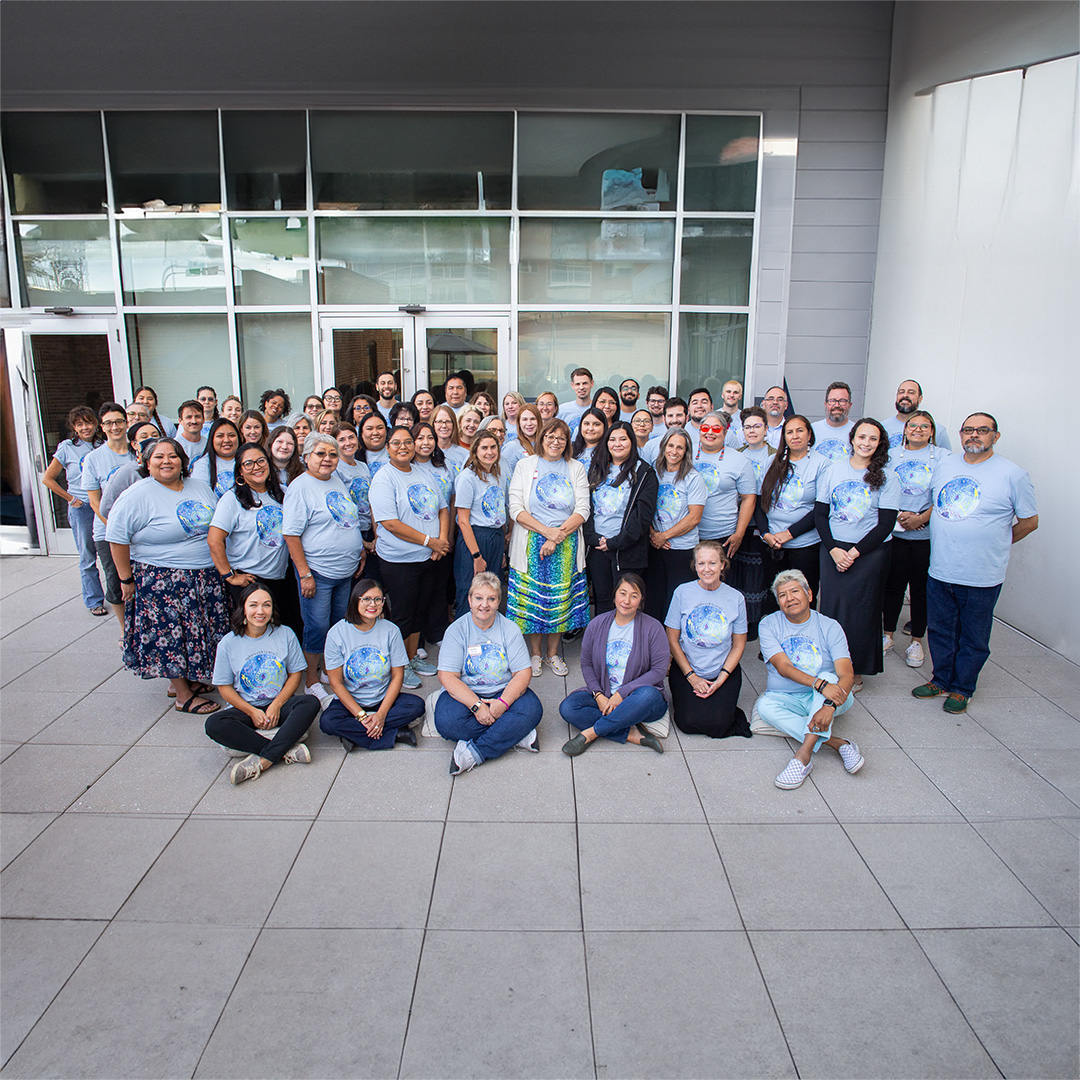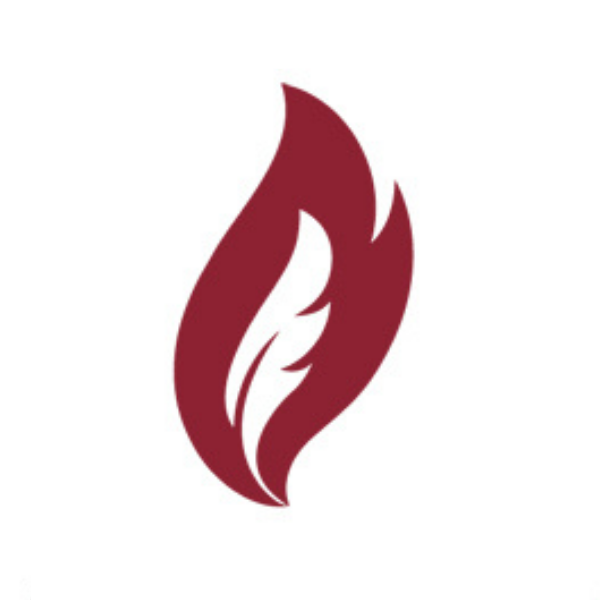by Harley Interpreter, Indigenous Visionaries Fellow
Yá’át’ééh shidine’é. Shí’ éí Harley-Daniel Interpreter yinishyé. ‘Ádóone’é nishlínígíí éí Tł’ogí Dine’é nishłį, Dziłghá’í báshíshcíín, ‘Áshįįhí dashicheii, Tł’ízí Łání dashinálí. ‘Ákót’éego ‘éí ‘asdzání nishłį. Tsiiyi’ Be’ak’idéé’ naashá. ‘Ółta’í nishłį.
I am currently a student pursuing a Bachelor of Arts degree in psychology at Diné College, a tribal college (TCU). While attending school I work as the social media engagement agent in the Office of the President. I come from the small, rural community of Forest Lake on the Navajo Nation.
My chosen project is to continue the Voter Educational Forum, a student-led event to inform and educate my tribal members about voting as a fundamental responsibility. I will work with key organizers and stakeholders to expand voter education across the Navajo Nation. This experience is new to me, but I also recognized a level of responsibility, respect, relation, and reciprocity inherent in it—values that are at the center of my TCU and my life as a Native person.
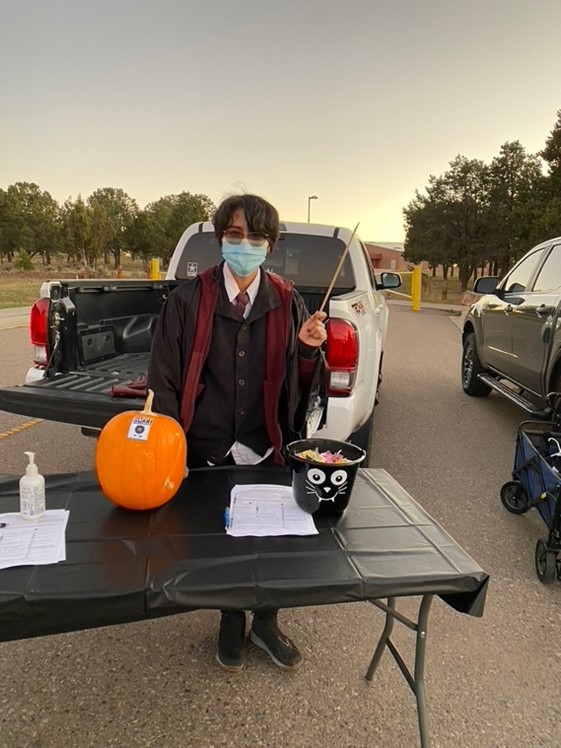
Diné College Trunk or Treat parking lot event. Harley Interpreter created a voter registration stand and distributed candy.
T’áá hó ájít’éego (Accountability and Compassion)
When it comes to politics, initially I wanted nothing to do with them. I’ve come to realize that the issues are unavoidable, especially for tribal members who are less privileged than I am. Yet, I did not know where to start with the project. I used to think that someone needed to be in an association or pay a membership to be heard.
I have since learned that to achieve a goal, you must first start by showing up. Eventually, as part of the process, you will learn how issues affect you, your family, your community, and your nation.
At this point I have received training on voter registration, phone banking, and providing information resources to the public. In the remainder of 2021, I worked to inform the public about redistricting. Since the start of 2022, midterms have picked up traction within the first 100 days of Arizona’s Legislative Sessions. There is a lot of organizing that goes into making these events a reality.
Axhił na’anish (Cooperating, respecting, and helping one another: K’é)
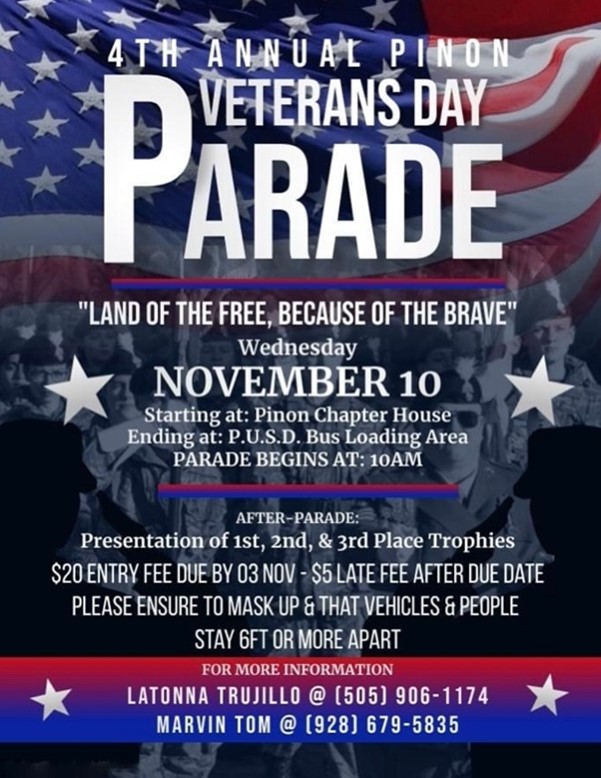
4th Annual Piñon Veterans Day Parade Flyer. Harley Interpreter walked along the parade route to provide attendees with QR code links to voter registration information.
The pressures of COVID 19 made many organizations create ways to make themselves available to the public online. With a simple click on a link, people can get many resources that were not available before the pandemic. What surprised me the most is the level of organizing and mobilizing I saw happen right within the Navajo Nation when COVID hit and when national elections were happening. After the 2020 Educational Forum, I continued to look for spaces like this to work in.
When I was approached with this fellowship opportunity, I was meeting regularly with a group of volunteers who were doing what they could at the public/community level, all in different fields, all over the country. I have met so many people who have taken on leadership positions from within their community to state and federal positions. These individuals have highlighted elements of voter outreach and mutual aid, liberation, redistribution, mobilization, and have created a sense of community I had not known or seen before at this level. I want to thank all the organizers who have made me feel welcome and who have supported our initiative.
Ił Ídlį (Diversity and Inclusiveness) and Ił Ééhózin (Understanding)
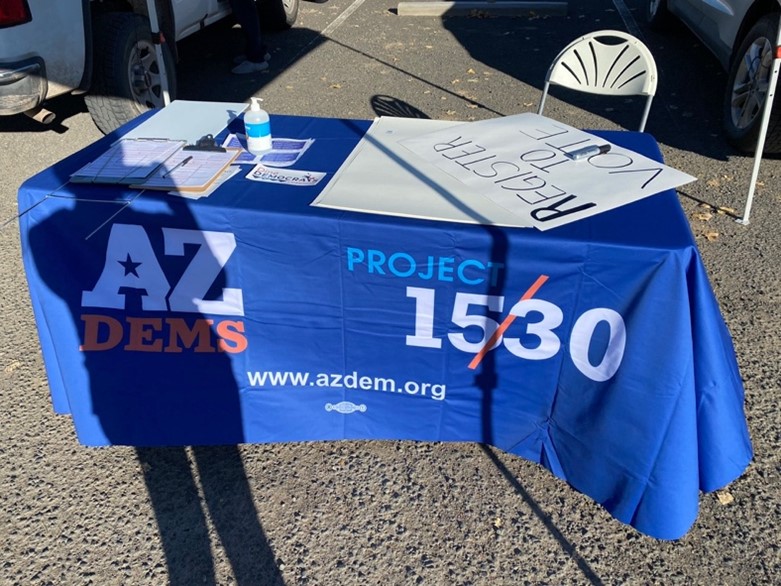
Harley Interpreter helped Project 15/30 register voters or update people’s voter information outside the Piñon Chapter.
Creating change does not have to be explicitly reserved for political action. Change can happen on any level. Historian and cultural critic Jeff Chang described cultural change with the following analogy: “Think of culture as water. It may be soft, but it covers 70% of the earth. Culture is where people express values. It is where they form identities and disseminate new ideas. Politics may be where some of the people are some of the time but culture is where most of the people are most of the time. Culture is all around us. It’s the ocean — and we need to go deep. Yet we too often overlook it…cultural change proceeds political change.”
I have learned that as part of a global majority, in organizing an event, a club, or even just a small get-together, one obtains a skill set that helps them become a changemaker.
Showing up is a small act that demonstrates caring and may be the most important thing you can do. In that same regard, when making ourselves accessible we have the power of social media and tools like Zoom to help us inspire change. There are many vital issues to discuss, and so long as we continue the conversation, we become a channel for inspiration and cultivating care and connection. A holistic perspective reminds us that we are part of something larger than our individual selves, like a web.
Both action and complacency have impacts. These spaces create communal support and inter-dependence. I encourage my peers to create spaces if they cannot find them. In this way, we are deciding what it is that we want to achieve.


